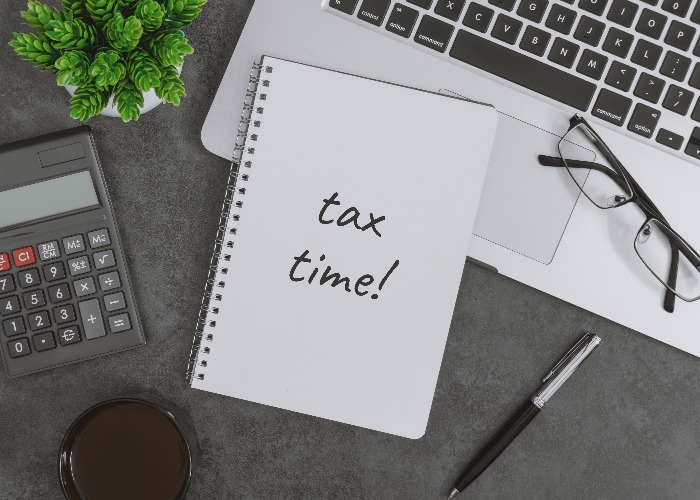UK Self Assessment paper tax return guide 2025: how to fill out your form

Time is running out to file your 2024/25 Self Assessment paper tax return.
Sections
Paper tax return deadline: 31 October 2025
Time is fast running out to file a Self Assessment paper tax return for the 2024/25 tax year.
The deadline for completing paper tax returns is midnight on 31 October and if you fail to do it on time you will be hit with a £100 fine.
If you want to file your Self Assessment online – with the deadline of 31 January 2026 – please go to our specialised guide.
Who needs to file a tax return?
You’ll likely need to file a Self Assessment return if:
- You’re self-employed;
- You’re a partner in a business partnership;
- You’re a company director;
- You get income from property;
- You get income from trusts, settlements, or estates;
- You have Capital Gains Tax to pay;
- You need to claim expenses or reliefs;
- You’re a trustee;
- You get income from overseas;
- You’ve lived or worked abroad or don’t live in the UK permanently.
What documents you'll need for your tax return
To make sure you fill in the form correctly it’s important to have all the information you need to hand.
This will include details of all income earned in the 2024/25 tax year, including self-employed earnings, income from investments and savings, rental income and capital gains.
You’ll also need your P60 and P11D documents, any interest statements from your bank or building society and information on dividends from shares, as well as details of your deductions, including Gift Aid and pension contributions.
You should also gather receipts and other evidence for any tax relief you want to claim.
If you’re self-employed and work from home, for example, you can claim towards heating, lighting, cleaning, as well as other expenses necessary to run your business.
Where to get help filling in your return
You can authorise an accountant to deal with your affairs on your behalf.
If you do so, they will be able to file your tax return if they are registered as a tax agent with HMRC.
If you’re going to have a crack yourself, there is plenty of help available.
For the main tax return (SA100) you should consult the guidance notes (SA150). This document is 16 pages long but should cover most of what you need to know.
You may have to fill in extra sections known as supplementary pages on your tax return, ranging from SA101: Additional Information to SA105: UK Property, but these will also come with guidance notes to help you fill them in.
HMRC also provides a range of helpsheets as well as videos and webinars online.
But if you’re stuck, you can also call HMRC on 0300 200 3310. Advisers are available 8am to 8pm Monday to Friday. They are no longer available on weekends.
Also read: best ways to contact the taxman
Still plenty of time to file online
The deadline for filing an online tax return is 31 January next year.
The HM Revenue & Customs (HMRC) online system is designed to speed things up and make it easier for people to submit their tax return, but to do so you need a user ID and an activation PIN.
You can apply for these online. To do so you’ll need your 10-digit reference number, found on any tax statement, plus your National Insurance number.
Once you’ve registered, the ID and PIN are then sent to you in the post and could take up a week to arrive.
When you get the code, you need to log in and activate your account.
You only have 28 days to do this before the code expires and you have to apply for another one.
Paying your tax bill
The tax you owe can either be collected through your tax code or through a system called payment on account (POA).
POAs are made in advance to cover their tax liability for next year and are payable in January and July.
They are designed to ease cashflow and each of them is typically half of the previous year’s tax liability – although they can be reduced if you are earning less than previous years.
Get help with your tax return: sign up to Simply Tax
Fines for late filing/payment of taxes 2025
There is a £100 fixed penalty for submitting your paper tax return later than 31 October, even if you have no additional tax to pay.
If the return is more than three months late there is a £10 daily charge for up to 90 days – so fail to file until the end of April and you’ll be fined £1,000 (£100 original fine + £900 daily charges).
The subsequent, further fixed penalties have been replaced by a sliding scale starting at £300, depending on the tax owed and the length of delay before payment is made.
After six months, a further penalty of 5% of the tax due or £300, whichever is greater, is levied and after 12 months, another 5% or £300 charge, whichever is greater.
In serious cases, the penalty after 12 months can be up to 100% of the tax due.
There are also additional interest penalties for paying tax late: 5% of the tax unpaid at 30 days, six months and 12 months.
Comments
Be the first to comment
Do you want to comment on this article? You need to be signed in for this feature